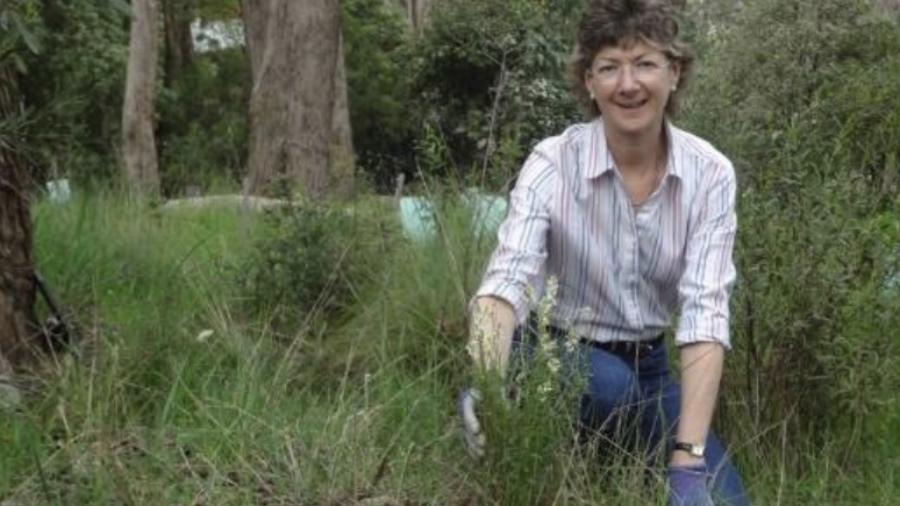My early evangelical faith, which stressed the importance of saving souls and social action, led me to train as a nurse/midwife. In 1985 I joined a Christian medical team assisting Cambodians in a refugee camp on the Thai-Cambodian border. In 1988 I moved to Cambodia to work with World Vision in a Mother and Child Health program. Later I established a local NGO, Chrysalis, which used improvisational drama to assist disadvantaged people to find value in their life. It was through this work that I discovered the Arts to be an effective tool for assisting people to discover a transformative way of being and doing. In 2007 I left Cambodia with my husband and three young children and moved to live in the Adelaide Hills in South Australia. I soon became aware that this area was experiencing the dire effects of the 2001- 2009 millennium drought. I was deeply saddened to see the natural environment around our home slowly dying. Despite the fact my evangelical faith did not advocate Creation care, I felt a responsibility to care for it. On reflection, I maintain that some of this desire came from my father, who was both a farmer and passionate conservationist in the United Kingdom; and some came from a God-given, but dormant, desire to care for his creation.
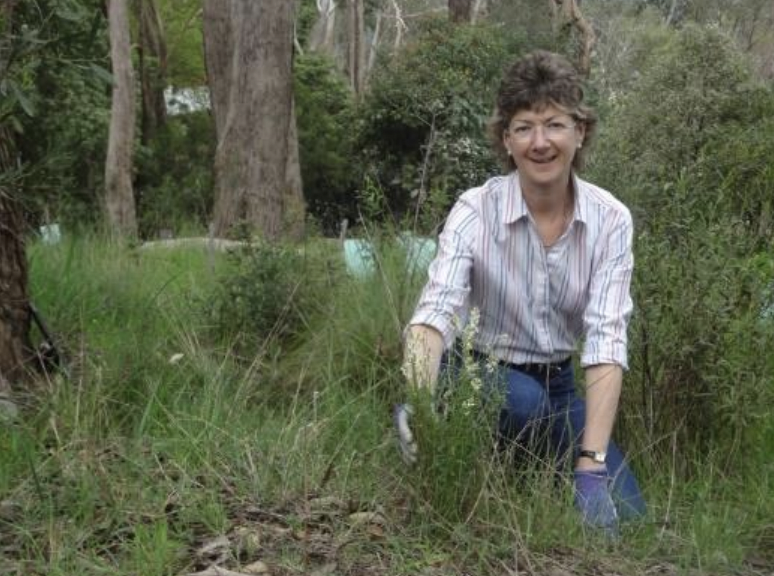
Our home was adjacent to some bushland, an environment that was heavily infested with weeds. I started trying to remove some. It was hard work as the invasive grasses have a habit of rapidly multiplying. One day while I was removing one particularly large clump, I discovered hiding underneath it was a small indigenous bush. It had a mass of dainty yellow flowers (being a Pricky Guinea-flower, Hibbertia exutiacies). At that moment, the following thoughts came to my mind: These invasive grasses represent the destructive practices that have occurred in Australia since Europeans arrived. As a result, God’s creation has been oppressed, invaded and destroyed. It is struggling to survive but God hasn’t given up on it because he loves it and will continue to sustain it, just like this little Prickly Guinea-flower.
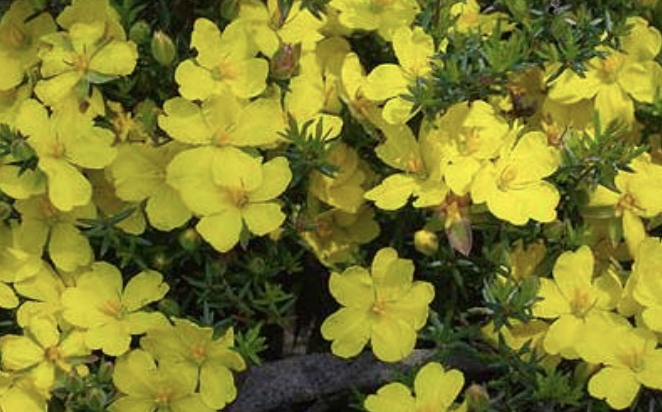
I felt at that moment God was asking me to speak out and act against this injustice, but also that he had entrusted me with a responsibility to pass on this vital message to evangelical Christians. This, I realized, would not be an easy task, as I considered my inadequate understanding of the biblical reasons for Creation care. I needed to examine the pillars on which my evangelical faith was based, as well as think through the biblical, moral and ethical reasons as to why Christians are to care for God’s creation.
Amongst the many things I studied, I came to realize, as Paul explains in Romans 8: 18- 26, that we are not saved from the world of creation but saved for the world of creation, and in Genesis 2:15 we are called to be God’s “pro-creators, his stewards, his vice-regents for his creation.” Secondly, I was keen to find others who shared my newfound conviction. I was disappointed to be unable to find any in the local evangelical churches, nor could I find an Australian Christian organisation involved in Creation care.
After an extensive internet search, I discovered A Rocha, an international Christian organisation with amazing conservation projects in over 20 countries around the world. I loved their diversity and their values: Christian, Conservation, Community, Cross-cultural and Co-operation. But it was not until 2016 that A Rocha Australia came into existence and I became one of their directors. I also discovered evangelicals involved in the Global Lausanne Movement who were actively promoting Creation care.
I was invited to be part of their 2012 Consultation on Creation Care and Gospel, that led to two primary conclusions:
• Creation care is indeed a ‘gospel issue within the lordship of Christ’, and
• We are faced with a crisis that is pressing, urgent, and that must be resolved in our generation.
From this they produced a Call to Action, and invited Christians and Christian organizations everywhere to signify their agreement with and commitment to its call. I was eager to encourage my evangelical friends to become involved in A Rocha, but soon discovered some of them did not want to spend time looking after the environment and were not ready to adopt the call to a simpler lifestyle, that requires us to live lightly on this earth.
I later realized that this was not because they did not want to get their hands dirty, but more because of their underlying beliefs. They believed, as I had done, that it was more important to tell people about Jesus’ love and message of salvation, as well as help the poor and needy.
I agree that these aspects are central to the Christian faith, but I also believe that caring for our neighbour must extend to caring for God’s creation.
Since that time, I’ve discovered that there are a growing number of theologians writing scholarly books on the Scriptural reasons for creation care, for example, Dave Bookless, Douglas Moo & Jonathan Moo and Steven Bouma-Prediger. But my question remained: How do I help those who remain ambivalent, confused, or resistant? This dilemma is succinctly voiced by Olafur Eliasson, in his 2016 book Why Art has the Power to Change the World,
“[o]ne of the great challenges today is that we often feel untouched by the problems of others and by global issues like climate change, even when we could easily do something to help. We do not feel strongly enough that we are part of a global community, part of a larger we. Giving people access to data most often leaves them feeling overwhelmed and disconnected, not empowered and poised for action.”
I concluded that it was unlikely many of my friends would have an ecological “conversion experience” like mine, nor would they have the opportunity to follow my example by taking time out for formal study, and nor would providing them with appropriate biblical passages necessarily change them.
This led me on a journey to explore alternative ways to transformative change.
My experience in Cambodia with the NGO Chrysalis reminded me of how the arts can act as a catalyst for transformation. As Eliasson writes,
“[a]rt does not show people what to do, yet engaging with a good work of art can connect you to your senses, body, and mind. It can make the world felt. And this felt feeling may spur thinking, engagement, and even action.”
This exploration led me to consider the following question: Could the transformative role I saw the creative arts have in the lives of the disadvantaged people in Cambodian be transferable? Could it assist in changing the attitudes and practices among evangelical Christians towards Creation care?
This led me to enrol in a Doctor of Ministry so I could explore in practical ways to address this question. I developed the following research question: What features of an arts-based experiential workshop are most likely to lead to a transformative wholistic awareness of creation care for Christians to more fully integrate their faith with creation care?
The results of my research demonstrated that my research question had been answered. I have now successfully passed my Doctor of Ministry, but the journey hasn’t ended! It’s time to find a church/parachurch group in which to trial the workshop template.
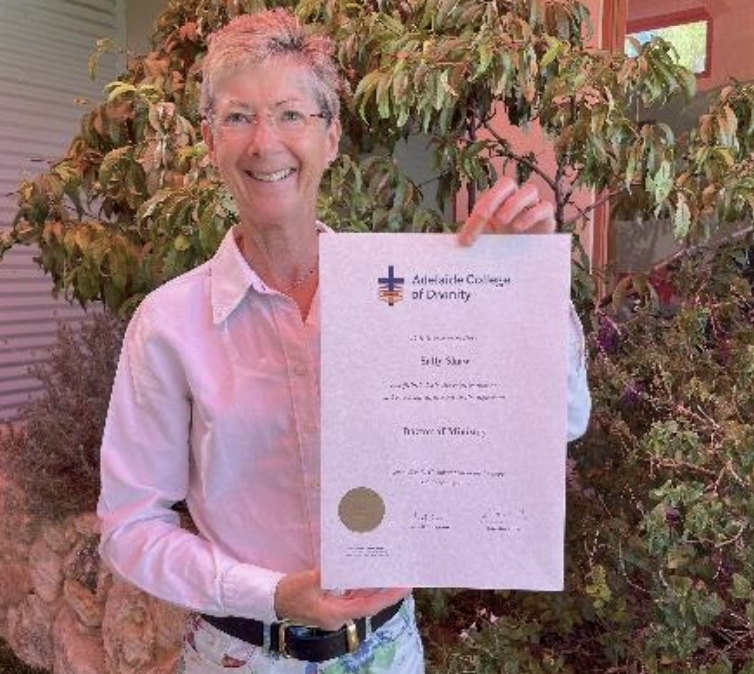
I live with my husband in Aldinga Beach, south of Adelaide and enjoy helping others of all ages to experience caring for creation, including at the Hart Road wetlands!
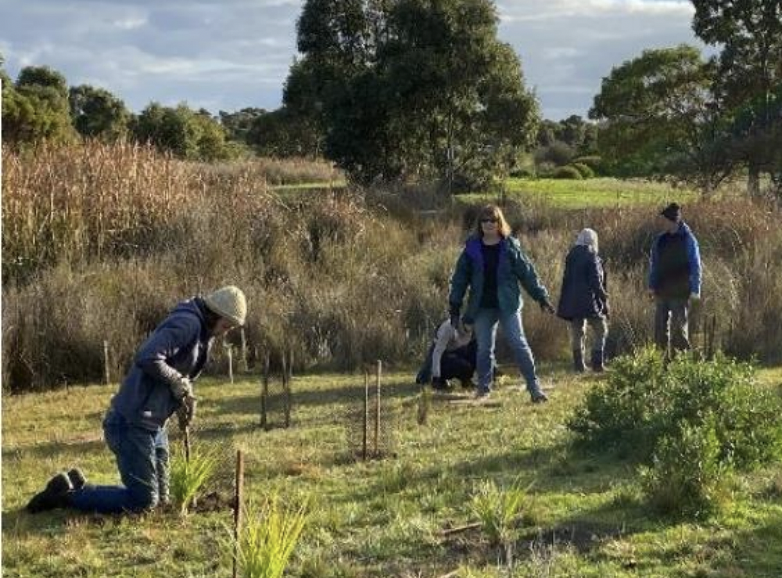
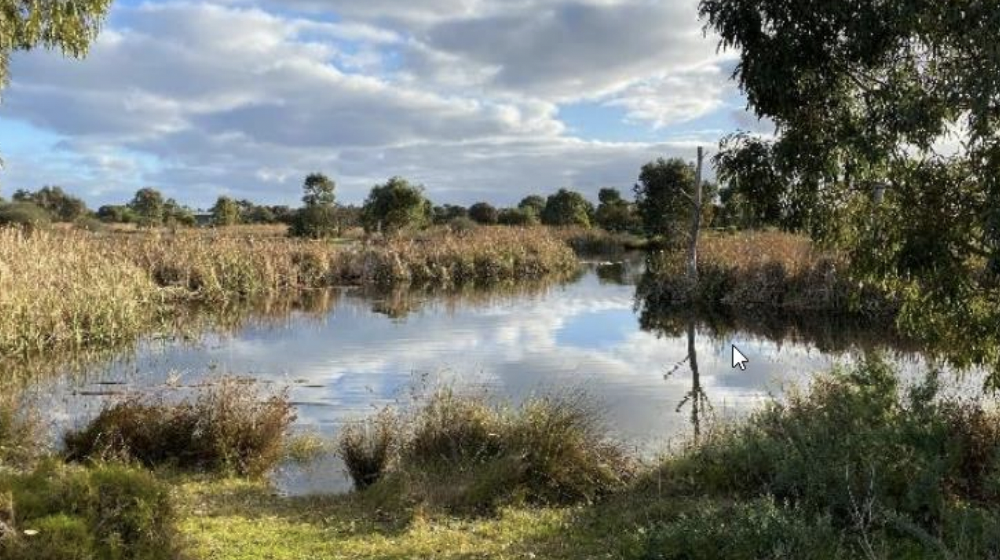
– Sally Shaw
This story was shared in the Summer 2020/21 A Rocha Australia ENews.

